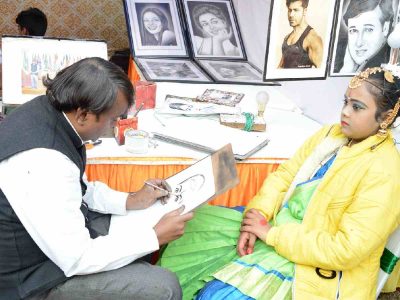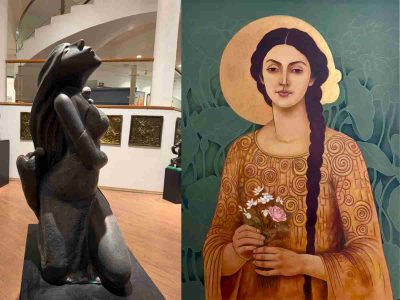Since social distancing is the key to containing the spread of the infection, most states have shut down educational institutions, malls, theatres, and prohibited large public gatherings
THE NOVEL Coronavirus has enveloped the world in a pall of fear and panic. In India, the first case of the virus, also known as Covid-19, was reported on January 30. Over the next three days, two more cases came to light. The three patients, all from Kerala, had returned from Wuhan in China, the epicentre of what has become a global pandemic.
In the month that followed, no fresh cases were reported in the country. However, on March 3, two more patients from Delhi and Hyderabad tested positive. Since then, new cases have been routinely recorded in different places, bringing the spectre of Covid-19 to India.
According to the Ministry of Health and Family Welfare’s data, at 12 pm on March 18, the number of confirmed cases in the country stood at 147 (the number rose to 169 the following day). In all, 16 states and Union Territories have reported Coronavirus infections. Three people have died so far, one each in Karnataka, Delhi, and Maharashtra.
On March 11, the central government announced that all states and Union Territories should invoke Section 2 of the Epidemic Diseases Act, 1897 so as to be able to enforce all advisories periodically issued by the central health ministry and state authorities.
Three days later, the Centre declared the disease a “notified disaster” under the Disaster Management Act of 2005. This has allowed states to spend a larger chunk of resources under the State Disaster Response Funds to fight Covid-19.
Maharashtra is the worst affected of India’s states with 49 reported cases so far. Kerala has 27 cases, and both Haryana and Uttar Pradesh have 16 each. The figures for all other states are, so far, below 10.
As social distancing holds the key to halt the infection spread, a common response by state governments has been to shut down places where large gatherings occur. Over a dozen states and Union Territories have ordered the closure of education institutions, shopping malls, swimming pools, movie theatres, and gyms till the end of March.
The World Health Organization has urged all the affected countries, numbering over 150 now, to widen their testing drives and cover as many people as possible to fight the pandemic. But Indian authorities so far have adopted narrow criteria. The country has only been testing those with a recent travel history from affected countries or those who have come in contact with a confirmed case and shown symptoms after two weeks of quarantine. On March 17, however, it added to the list the healthcare workers with symptoms who have been treating patients with severe respiratory illnesses.
Balaram Bharghava, who heads the Indian Council of Medical Research, India’s top body for medical research, has termed the WHO guidance “premature” for India because community transmission is yet to be detected in the country.
“Therefore, it creates more fear, more paranoia and more hype,” he said.
In addition to the Centre’s efforts, states have individually prepared to contain the spread of COVID-19. Here are some major steps taken by states with at least five cases of Coronavirus infection to contain the threat to public health.
MAHARASHTRA
Maharashtra has deemed the Coronavirus an “epidemic”. On March 17, the state government enforced in Nagpur and Nashik Section 144 of the Criminal Procedure Code prohibiting the assembly of four or more people at a place. A day before, the government had also decided to mandatorily “stamp” all those who had been sent to 100 percent home quarantine in view of the outbreak. Accordingly, Mumbai’s municipal corporation directed hospitals and airport authorities to stamp the left palm of whoever is sent to quarantine. The stamp, which includes dates of isolation, is in indelible ink that lasts at least 14 days — an attempt to easily identify those sent to quarantine if they mingle with the general public.
In addition, the municipal corporation has brought three private hotels and a Public Works Department guest house on board to provide pay-and-use quarantine facilities to travellers flying in from abroad. The corporation has ensured that the hotel rooms are available at lower rates for interested patients to get quarantined. Others can avail government facilities.
All state government offices have been ordered to remain shut until March 24. Shrines and religious sites, including temples, mosques and churches, were asked by the government to avoid large gatherings and ceremonial prayers until further orders.
KERALA
Given millions of its people work abroad, Kerala jumped into action much earlier than other states. Kochi airport was one of seven airports — the others being New Delhi, Mumbai, Bengaluru, Chennai, Hyderabad and Kolkata — in the country that began the process of thermal screening of some international passengers on January 23. Two days later, Chief Minister Pinarayi Vijayan directed his health minister, KK Shailaja, to assess the threat and formulate an action plan.
The health department decided to follow the WHO protocols. It set up isolation wards in all medical colleges and district and general hospitals. It also began training medical support teams and issued treatment protocols.
On March 10, the state government announced the cancellation of mass gatherings in the state until the end of the month. On March 10, Vijayan urged the devotees not to visit the Sabarimala temple for the six-day monthly puja, but clarified that “the rituals in the temple will be allowed to
HARYANA
With more than a dozen reported cases, the Haryana government on March 12 declared Coronavirus an “epidemic”. Health minister Anil Vij asked people to avoid large gatherings. The next day, it shut down all universities and colleges until March 31.
The government also decided to close schools in five districts — Gurugram, Sonepat, Rohtak, Jhajjar and Faridabad — till March 31, officials said.
UTTAR PRADESH
On March 13, Chief Minister Adityanath announced that all schools and colleges, where examinations are not being held, would remain closed until March 22. On March 17, the restrictions were extended to cinema halls and tourist places and ordered to stay in place until April 2. No exception has been made for competitive and other examinations.
The Adityanath government has set up isolation wards in all the 75 districts of the state and medical staff of doctors, paramedics and nurses have been provided training to deal with the virus outbreak.
DELHI
Delhi too has declared coronavirus an “epidemic”. On March 5, the government closed all primary schools until March 31. Following a spike in cases, Chief Minister Arvind Kejriwal announced on March 12 that the order would extend to all schools, colleges, universities, and cinema halls. Scheduled exams would, however, continue in schools and colleges, he added.
On March 16, Kejriwal announced the closure of all gyms, night clubs, and spas. Also, except for weddings, gatherings of more than 50 have been prohibited.
Flyers from China, South Korea, Germany, France, Spain, Italy, and Iran are straightaway sent to quarantine centres for observation and examination. The Delhi government has also asked all hotels in Aero City near the airport to keep isolated accommodation ready for travellers asymptomatic to COVID-19.
Karnataka
On March 13, Chief Minister BS Yeddiurappa asked all malls, theatres, pubs, and exhibitions across the state to suspend operations for a week. The order effectively applied to all nightclubs, swimming pools, play areas, music festivals, club events, summer camps, sporting events, weddings, conferences, and parties like birthdays and engagements.
Colleges and universities were also shut for a week, after schools had already been ordered closed.
OTHER STATES
States and Union Territories with five or less cases of coronavirus infection have similarly closed educational institutions and public spaces. They include Telangana, Odisha, Punjab, Rajasthan, Jammu and Kashmir, Tamil Nadu, Uttarakhand, and Bengal. In most of the states, while exams will be held as scheduled, regular classes and gatherings in public spaces have been suspended until the end of the month.
Several other states that have not reported positive cases of the coronavirus have stepped up precautionary efforts.
While most states are on guard and taking a series of measures, there have been public complaints regarding them. In a number of states, people have brought to light unhygienic conditions of isolation wards. Such cases have been reported in Agra, Mangaluru, Manesar and Mumbai.
Given that coronavirus infection is spreading in India, state governments will need to ramp up their efforts in the coming days. The country’s huge population means there’s a serious risk of the already overburdened healthcare system being overwhelmed in the event of a massive outbreak, as has happened in Italy and Iran
www.newslaundry.com





